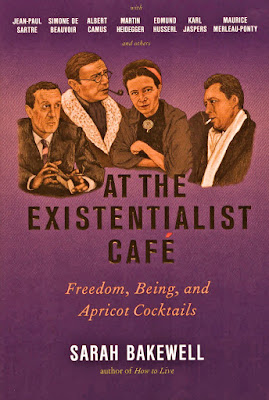At The Existentialist Cafe

“To philosophize is to learn how to die.” (Cicero) There are books we remember all our lives. We remember where we first read them, the way they made us feel, the way the world seemed so fresh, so colorful, so new when we finished the last page. We remember how we never wanted them to end. I had that experience reading Sarah Bakewell’s At The Existentialist Café: Freedom, Being and Apricot Cocktails (Other Press, 2016). I knew Bakewell was good— I reviewed her book on Montaigne a few years ago—but this is a masterwork of biography not just of a person, but people, places, a philosophy and a way of life. In fact, early on, she calls Existentialism more a mood than a philosophy and traces its lineage back to Job and Ecclesiastes in the Bible, up through St. Augustine and Blaise Pascal, to Jean-Paul Sartre, Simone de Beauvoir, Albert Camus , Martin Heidegger, Edmund Husserl, Karl Jaspers, and Maurice Merleau-Ponty. The last seven names are the ...

